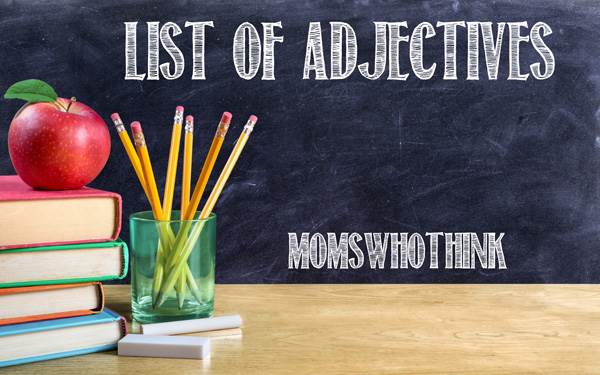English speakers use prepositions in both formal and everyday communication. Without them, the English language would sound short and choppy. If you have a child starting grammar lessons, read through the list of prepositions and take a quick refresher class on them so you can help them succeed.

Scroll down to go straight to the big list of prepositions.
Prepositions connect nouns, pronouns, and phrases with other words in a sentence. It gives information about location, direction, space, or time. Prepositions are usually part of a phrase because they often have a noun or pronoun after them. Here are two examples of prepositions in sentences:
The dog jumped over the fence.
I will go to the doctor.
The main job of prepositions is to create relationships between words. How is the dog related to the fence? It jumped over the fence. How am I related to the doctor? I am going to the doctor.

©Anggun Aprilia Sovia/Shutterstock.com
Prepositional phrases can also act like adverbs or adjectives. Remember that adverbs describe verbs (actions and being), and adjectives describe nouns and pronouns (ideas, people, places, and things).
As an adverb – The children crossed the street with caution.
The prepositional phrase “with caution” describes the way the children crossed the street.
As an adjective – He lives in the house with the red roof.
The prepositional phrase “with the red roof” describes the house in a specific way.
Children will see prepositions in their early reader books. In Kindergarten and first grade, children are focused on word recognition and reading skills. Basic sentence structure is taught, but it is too early for children that young to learn parts of speech. Below is a list of prepositions new readers can recognize easily.
List of Basic Prepositions
Preposition Starter List
as
at
but
by
down
for
from
in
into
like
near
next
of
off
on
onto
out
over
past
plus
minus
since
than
to
up
with
As children develop their reading skills, they will learn the spelling and definitions of more complex words. They are introduced to prepositions and other parts of speech between the second and fourth grade. The following list shows some more advanced prepositions:
List of Advanced Prepositions
More Advanced Preposition List
aboard
about
above
across
after
against
along
around
before
behind
below
beneath
beside
between
beyond
during
except
following
inside
minus
onto
opposite
outside
round
since
through
toward
under
underneath
unlike
until
upon
without
Compound Prepositions

©Shamar Whyte/Shutterstock.com
Older elementary and middle school students are exposed to a variety of prepositions. This includes compound words and single words used in complex sentences.
Examples of Compound Prepositions
according to
along with
alongside
among
apart from
as for
atop
because of
by means of
concerning
despite
except for
in addition to
in back of
in case of
in front of
in place of
in spite of
instead of
on top of
out of
regarding
throughout
till
up to
via
within
worth
Of course, the English language is full of exceptions. Some prepositions seem to break the rules, yet make sense in everyday language. These are called idioms. A few common examples include the following:
List of Idioms
according to
capable of
familiar with
impatient with
rewarded for
superior to
Prepositions are not always easy to identify in spoken and written language. However, they play a big part in making the English language colorful and interesting. Use this list of prepositions as a quick guide to help your student learn about prepositions.
List of the Most Common Prepositions
Common Prepositions Starting with A
aboard
about
above
absent
across
after
against
along
alongside
amid
amidst
among
anti
around
as
at
atop
Common Prepositions Starting with B
bar
barring
before
behind
below
beneath
beside
besides
between
beyond
but
by
Common Prepositions Starting with C
circa
counting
concerning
considering
Common Prepositions Starting with D
despite
down
during
Common Prepositions Starting with E
except
excepting
excluding
Common Prepositions Starting with F
following
for
from
Common Prepositions Starting with G
given
gone
Common Prepositions Starting with I
in
in front of
inside
instead of
into
Common Prepositions Starting with L
less
like
Common Prepositions Starting with M
mid
minus
Common Prepositions Starting with N
near
next
Common Prepositions Starting with O
of
off
on
on top of
onto
opposite
out of
outside
over
Common Prepositions Starting with P
past
pending
per
plus
pro
Common Prepositions Starting with R
regarding
regardless of
round
Common Prepositions Starting with S
save
saving
since
Common Prepositions Starting with T
than
through
throughout
till
times
to
toward
towards
Common Prepositions Starting with U
under
underneath
unlike
until
up
upon
Common Prepositions Starting with V
versus
via
Common Prepositions Starting with W
with
within
without
worth
Tips for Helping Your Child Learn Prepositions
Some children will learn prepositions without much difficulty. Others will struggle with learning them and using them properly. If your child falls in the latter category, here are some tips to help them out.
Be patient with them. Some children take longer than others to learn certain material. If you rush your child through academic milestones, they may not learn the information as they need to. Take your time when working through academic struggles with your child, and understand that they may take a while to grasp prepositions. Be understanding and calm, and you'll find that your child will end up learning better in the end.
Use online websites to help. A lot of websites offer additional material to help your child learn prepositions. Many of these sites have fun activities or games about prepositions; these can be a great way to get your child used to working with them. Children who are having fun are more likely to learn effectively, since they'll have a good reason to pay attention and to try. Alternatively, some of these sites have video tutorials that may explain prepositions in a way your child can understand.
Quiz them. By frequently quizzing your child on all of the prepositions, you'll help them memorize them. At random times, ask your child for the U prepositions, or for a sentence that uses an A preposition. Don't overwhelm your child, but make sure you quiz them frequently. In addition to helping them learn, quizzing your child will help you identify prepositions that your child is struggling with.
Get them a tutor. If your child is still struggling with prepositions after following the above tips, get them a tutor. A tutor will help guide them to success, and will build their confidence. Find a tutor that specializes in tutoring English. There are both online and in-person tutoring options that you can do for your child. Pick the one that fits your financial ability and your child's needs best.
The image featured at the top of this post is ©Olga Lyubkin/Shutterstock.com



















